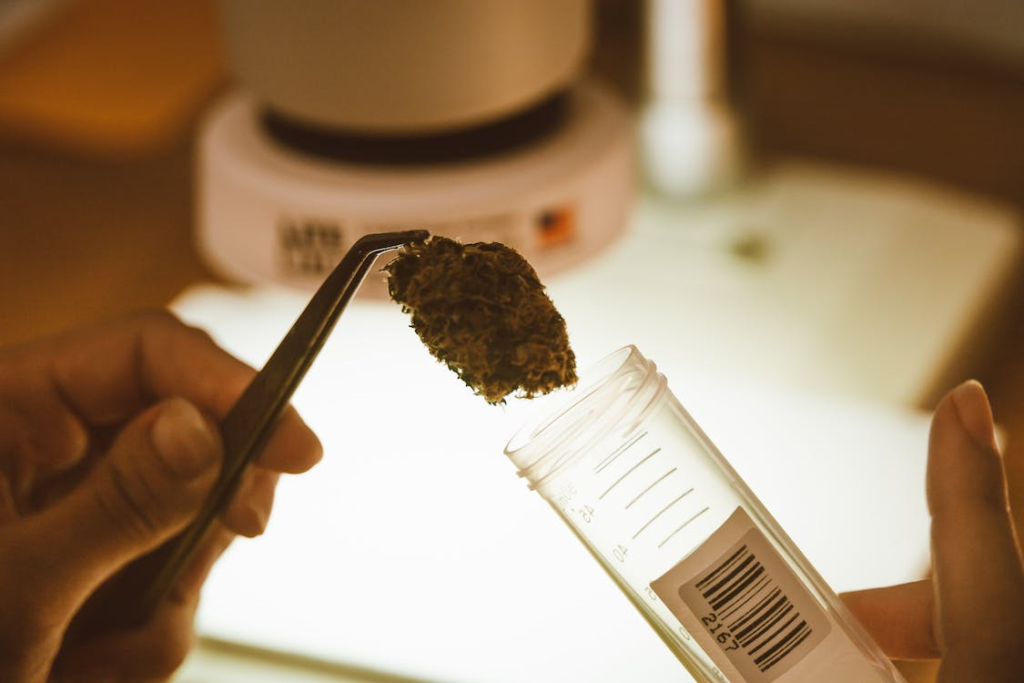The Role of Laboratory Testing in the Cannabis Industry: Ensuring Safety and Quality

by Barry Galvin
12/20/2023
With the growing legalization of cannabis worldwide, the cannabis industry is moving from an illegal and unregulated market to a legislated and safe one. This change creates opportunities for cannabis insurance, cannabis testing, and much more.
Undoubtedly, the major reason for mass legalization of cannabis is its popularity among people for both medical, and recreational uses. Cannabis has two primary effects, such as the calming effect of CBD or the psychedelic influences of THC.
To ensure the consumer gets what they paid for, laboratory testing for cannabis is rapidly growing. The development of cannabis testing labs ensures that the products you purchase are high quality and safe from any contaminants.
What Is Cannabis Lab Testing?
Cannabis lab testing involves screening and testing cannabis to ensure consumers get a safe product. Every cannabis business needs to hold regular testing and purchase cannabis insurance to ensure their product’s quality and consumers’ health.
Cannabis testing facilities are essential for guaranteeing the reliability and security of cannabis products, by carrying out various tests to check samples for elements that affect product quality and safety.
Some laboratories also adhere to the guidelines provided by groups like AOAC International and ASTM International, which allow businesses to maintain a good standard of their product.
While deciding between cannabis testing facilities, ensure that you choose a facility with up-to-date analytical equipment and qualified technicians trained regularly as per international standards.
Why Is Cannabis Testing Important?
As a cannabis business, it is your responsibility to ensure that your products adhere to the appropriate quality and safety standards. Cannabis testing enhances customer confidence, and increases your chances of remaining compliant with license requirements.
This is especially crucial now that the cannabis market is growing and competition is increasing. Product testing ensures that goods are free of dangerous pollutants, reducing hazards related to the market’s rapid expansion.
Finally, testing enables the cannabis sector to concentrate on creating superior goods by keeping track of and improving the caliber of cannabis crops.
What Is Cannabis Tested For?
Cannabis products are subject to regulatory testing, typically determining strength and checking for lingering impurities. To monitor the concentrations of CBD and THC in a product, potency testing, such as examining the cannabinoid and terpenoid content, are important. Methods to do so include:
gas chromatography coupled with a flame ionization detector (GC-FID)
high-performance liquid chromatography coupled with a diode array detector (HPLC-DAD)
These are used to detect levels of these CBD and THC precisely. Potency testing helps decrease the likelihood of overdose in consumers.
Pesticide testing is also common and used to look for harmful substances. Microbiological testing checks samples for mold, bacteria, yeast, and fungi traces.
Testing for heavy metal toxicity is important in cannabis; plants must be tested for cadmium, arsenic, lead, and mercury, all of which are very dangerous if ingested.
Challenges Faced By The Cannabis Testing Facilities
Numerous obstacles affect the reliability and consistency of cannabis testing. One significant issue is the lack of uniform laws throughout states, which causes differences in testing requirements.
It is challenging for labs to operate consistently due to the constant changes in legislation surrounding cannabis products. Running a testing facility at a standardized federal level is almost impossible.
Setting up and running a cannabis testing facility involves significant capital costs. High-tech equipment, knowledgeable staff, and ongoing costs for staffing, audits, and competence exams are all necessary. For certain labs, these expenditures can be a hurdle, which affects their capacity and ability to uphold quality control.
Another difficulty in cannabis testing is lab shopping, growers and distributors often switch labs to obtain positive results on their cannabis, if it is faulty in anyway. Lab shopping makes it difficult to determine which labs can be trusted to provide honest results and which cannot.
Endnote
Cannabis testing facilities are essential to ensure the quality of cannabis-related products. Through testing, these labs work to increase consumer confidence, reduce risks, and concentrate on making better products.
Even though cannabis testing does face challenges at the moment; the cannabis industry is constantly growing, and placing quality checks and insurance as a requirement ensures that the industry progresses safely.
Cannabis testing allows cannabis consumption to become safer and maintain a good reputation. If cannabis testing continues and the reputation of cannabis improves, it can help legalize cannabis is more states within the United States